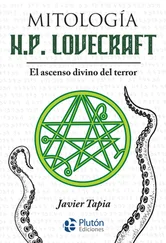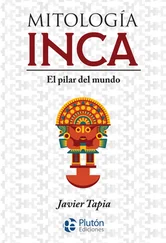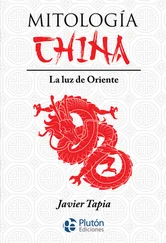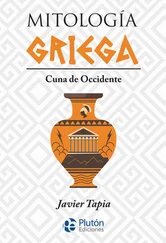A scene like this, a ransom scene, calls for a noirish mood: shadows, sinister silhouettes. But the sky wasn’t cooperating. We were having one of our pink nights. They happened every so often, depending on temperature and the level of chemicals in the air. When particulate matter in the atmosphere was sufficient, light from the ground got trapped and reflected back, and the entire Detroit sky would become the soft pink of cotton candy. It never got dark on pink nights, but the light was nothing like daytime. Our pink nights glowed with the raw luminescence of the night shift, of factories running around the clock. Sometimes the sky would become as bright as Pepto-Bismol, but more often it was a muted, a fabric-softener color. Nobody thought it was strange. Nobody said anything about it. We had all grown up with pink nights. They were not a natural phenomenon, but they were natural to us.
Under this strange nocturnal sky Milton pulled his car as close to the train platform as possible and stopped. He shut off the engine. Taking the briefcase, he got out into the still, crystalline winter air of Michigan. All the world was frozen, the distant trees, the telephone lines, the grass in the yards of the downriver houses, the ground itself. Out on the river a freighter bellowed. Here there were no sounds, the station completely deserted at night. Milton had on his tasseled black loafers. Dressing in the dark, he had decided they were the easiest to slip on. He was also wearing his car coat, beige and dingy, with a muff of fur at the collar. Against the cold he had worn a hat, a gray felt Borsalino, with a red feather in the black band. An old-timer’s hat now in 1975. With hat, briefcase, and loafers, Milton might have been on his way to work. And certainly he was walking quickly. He climbed the metal steps to the train platform. He headed along it, looking for the trash can where he was supposed to drop the briefcase. The kidnapper said it would have an X chalked on the lid.
Milton hurried along the platform, the tassels on his loafers bouncing, the tiny feather in his hat rippling in the cold wind. It would not be strictly truthful to say that he was afraid. Milton Stephanides did not admit to being afraid. The physiological manifestations of fear, the racing heart, the torched armpits, went on in him without official acknowledgment. He wasn’t alone among his generation in this. There were lots of fathers who shouted when they were afraid or scolded their children to deflect blame from themselves. It’s possible that such qualities were indispensable in the generation that won the war. A lack of introspection was good for bolstering your courage, but in the last months and weeks it had done damage to Milton. Throughout my disappearance Milton had kept up a brave front while doubts worked invisibly inside him. He was like a statue being chiseled away from the inside, hollowed out. As more and more of his thoughts gave him pain, Milton had increasingly avoided them. Instead he concentrated on the few that made him feel better, the bromides about everything working out. Milton, quite simply, had ceased to think things through. What was he doing out there on the dark train platform? Why did he go out there alone? We would never be able to explain it adequately.
It didn’t take him long to find the trash can marked with chalk. Swiftly Milton lifted its triangular green lid and laid the briefcase inside. But when he tried to pull his arm back out, something wouldn’t let him: it was his hand. Since Milton had stopped thinking things through, his body was now doing the work for him. His hand seemed to be saying something. It was voicing reservations. “What if the kidnapper doesn’t set Callie free?” the hand was saying. But Milton answered, “There’s no time to think about that now.” Again he tried to pull his arm out of the trash can, but his hand stubbornly resisted: “What if the kidnapper takes this money and then asks for more?” asked the hand. “That’s the chance we’ll have to take,” Milton snapped back, and with all his strength pulled his arm out of the trash can. His hand lost its grip; the briefcase fell onto the refuse inside. Milton hurried back across the platform (dragging his hand with him) and got into the Cadillac.
He started the engine. He turned on the heat, warming the car up for me. He leaned forward staring through the windshield, expecting me to appear any minute. His hand was still smarting, muttering to itself. Milton thought about the briefcase lying out in the trash can. His mind filled with the image of the money inside. Twenty-five grand! He saw the individual stacks of hundred-dollar bills; the repeating face of Benjamin Franklin in the doubled mirrors of all that cash. Milton’s throat went dry; a spasm of anxiety known to all Depression babies gripped his body; and in the next second he was jumping out of the car again, running back to the platform.
This guy wanted to do business? Then Milton would show him how to do business! He wanted to negotiate? How about this! (Milton was climbing the steps now, loafers ringing against the metal.) Instead of leaving twenty-five thousand bucks, why not leave twelve thousand five hundred? This way I’ll have some leverage. Half now, half later. Why hadn’t he thought of this before? What the hell was the matter with him? He was under too much strain . . . No sooner had he reached the platform, however, than my father stopped cold. Less than twenty yards away, a dark figure in a stocking cap was reaching into the trash can. Milton’s blood froze. He didn’t know whether to retreat or advance. The kidnapper tried to pull the briefcase out, but it wouldn’t fit through the swinging door. He went behind the can and lifted up the entire metal lid. In the chemical brightness Milton saw the patriarchal beard, the pale, waxen cheeks, and—most tellingly—the tiny five-foot-four frame. Father Mike.
Father Mike ? Father Mike was the kidnapper? Impossible. Incredible! But there was no doubt. Standing on the platform was the man who had once been engaged to my mother and who, at my father’s hands, had had her stolen away. Taking the ransom was the former seminarian who had married Milton’s sister, Zoë, instead, a choice that had sentenced him to a life of invidious comparisons, of Zoë always asking why he hadn’t invested in the stock market when Milton had, or bought gold when Milton had, or stashed money away in the Cayman Islands as Milton had; a choice that had condemned Father Mike to being a poor relation, forced to endure Milton’s lack of respect while accepting his hospitality, and compelling him to carry a dining room chair into the living room if he wanted to sit. Yes, it was a great shock for Milton to discover his brother-in-law on the train platform. But it also made sense. It was clear now why the kidnapper had wanted to haggle over the price, why he wanted to feel like a businessman for once, and, alas, how he had known about Bithynios. Explained, too, were why the telephone calls had come on Sundays, whenever Tessie was at church, and the music in the background, which Milton now identified as the priests chanting the liturgy. Long ago, my father had stolen Father’s Mike’s fiancée and married her himself. The child of the union, me, had poured salt in the wound by baptizing the priest in reverse. Now Father Mike was trying to get even.
But not if Milton could help it. “Hey!” he shouted, putting his hands on his hips. “Just what the hell are you trying to pull, Mike?” Father Mike didn’t answer. He looked up and, out of priestly habit, smiled benignantly at Milton, his white teeth appearing in the great bush of black beard. But already he was backing away, stepping on crushed cups and other litter, hugging the briefcase to his chest like a packed parachute. Three or four steps backward, smiling that gentle smile, before he turned and fled in earnest. He was small but quick. Like a shot he disappeared down a set of stairs on the other side of the platform. In pink light Milton saw him crossing the train tracks to his car, a bright green (“Grecian green” according to the catalogue), fuel-efficient AMC Gremlin. And Milton ran back to the Cadillac to follow him.
Читать дальше
Конец ознакомительного отрывка
Купить книгу












